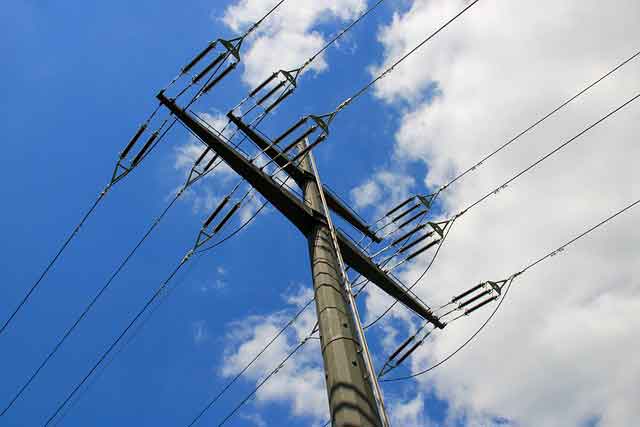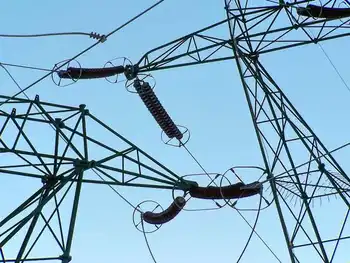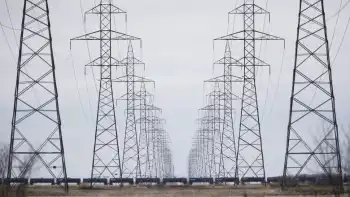Ontario Drops Starlink Deal, Eyes Energy Independence

Electrical Testing & Commissioning of Power Systems
Our customized live online or in‑person group training can be delivered to your staff at your location.

- Live Online
- 12 hours Instructor-led
- Group Training Available
Ontario Starlink Contract Cancellation underscores rising tariffs, trade tensions, and retaliation, as SpaceX's Elon Musk loses a rural broadband deal; Ontario pivots to procurement bans, energy resilience, and nuclear power to boost grid independence.
Key Points
Ontario ended a C$100M Starlink deal over U.S. tariffs, prompting a shift to rural broadband alternatives.
✅ Triggered by U.S. tariffs; Ontario adopts retaliatory procurement bans.
✅ Ends plan to connect 15,000 rural homes and businesses with broadband.
✅ Signals push for energy resilience, nuclear power, and grid independence.
In a decisive move, Ontario Premier Doug Ford announced the cancellation of a C$100 million contract with Elon Musk's Starlink, a subsidiary of SpaceX, in direct response to U.S. President Donald Trump's imposition of tariffs on Canadian imports. This action underscores the escalating trade tensions between Canada and the United States, a theme highlighted during Ford's Washington meeting on energy tariffs earlier this month, and highlights Ontario's efforts to safeguard its economic interests.
The now-terminated agreement, established in November, aimed to provide high-speed internet access to 15,000 homes and businesses in Ontario's remote areas. Premier Ford's decision to "rip up" the contract signifies a broader strategy to distance the province from U.S.-based companies amid the current trade dispute. He emphasized, "Ontario won't do business with people hell-bent on destroying our economy."
This move is part of a series of retaliatory measures by Canadian provinces, including Ford's threat to cut electricity exports to the U.S., following President Trump's announcement of a 25% tariff on nearly all Canadian imports, excluding oil, which faces a 10% surcharge. These tariffs, set to take effect imminently, have prompted concerns about potential economic downturns in Canada. In response, Prime Minister Justin Trudeau declared that Canada would impose 25% tariffs on C$155 billion worth of U.S. goods, aiming to exert pressure on the U.S. administration to reconsider its stance.
Premier Ford's actions reflect a broader sentiment of economic nationalism, as he also announced a ban on American companies from provincial contracts until the U.S. tariffs are lifted. He highlighted that Ontario's government and its agencies allocate $30 billion annually on procurement, and reiterated his earlier vow to fire the Hydro One CEO and board as part of broader reforms aimed at efficiency.
The cancellation of the Starlink contract raises concerns about the future of internet connectivity in Ontario's rural regions. The original deal with Starlink was seen as a significant step toward bridging the digital divide, offering high-speed internet to underserved communities. With the contract's termination, the province faces the challenge of identifying alternative solutions to fulfill this critical need.
Beyond the immediate implications of the Starlink contract cancellation, Ontario is confronting broader challenges in ensuring the resilience and independence of its energy infrastructure. The province's reliance on external entities for critical services, such as internet connectivity and energy, has come under scrutiny, as Canada's electricity exports are at risk amid ongoing trade tensions and policy uncertainty.
Premier Ford has expressed a commitment to expanding Ontario's capacity to generate nuclear power as a means to bolster energy self-sufficiency. While this strategy aims to reduce dependence on external energy sources, it presents its own set of challenges that critics argue require cleaning up Ontario's hydro mess before new commitments proceed. Developing nuclear infrastructure requires substantial investment, rigorous safety protocols, and long-term planning. Moreover, the integration of nuclear power into the province's energy mix necessitates careful consideration of environmental impacts and public acceptance.
The concept of "Trump-proofing" Ontario's electricity grid involves creating a robust and self-reliant energy system capable of withstanding external political and economic pressures. Achieving this goal entails diversifying energy sources, including building on Ontario's electricity deal with Quebec to strengthen interties, investing in renewable energy technologies, and enhancing grid infrastructure to ensure stability and resilience.
However, the path to energy independence is fraught with complexities. Balancing the immediate need for reliable energy with long-term sustainability goals requires nuanced policy decisions, including Ontario's Supreme Court challenge to the global adjustment fee and related regulatory reviews to clarify cost impacts. Additionally, fostering collaboration between government entities, private sector stakeholders, and the public is essential to navigate the multifaceted challenges associated with overhauling the province's energy framework.
Ontario's recent actions, including the cancellation of the Starlink contract, underscore the province's proactive stance in safeguarding its economic and infrastructural interests amid evolving geopolitical dynamics. While such measures reflect a commitment to self-reliance, they also highlight the intricate challenges inherent in reducing dependence on external entities. As Ontario charts its course toward a more autonomous future, strategic planning, investment in sustainable technologies, and collaborative policymaking will be pivotal in achieving long-term resilience and prosperity.











